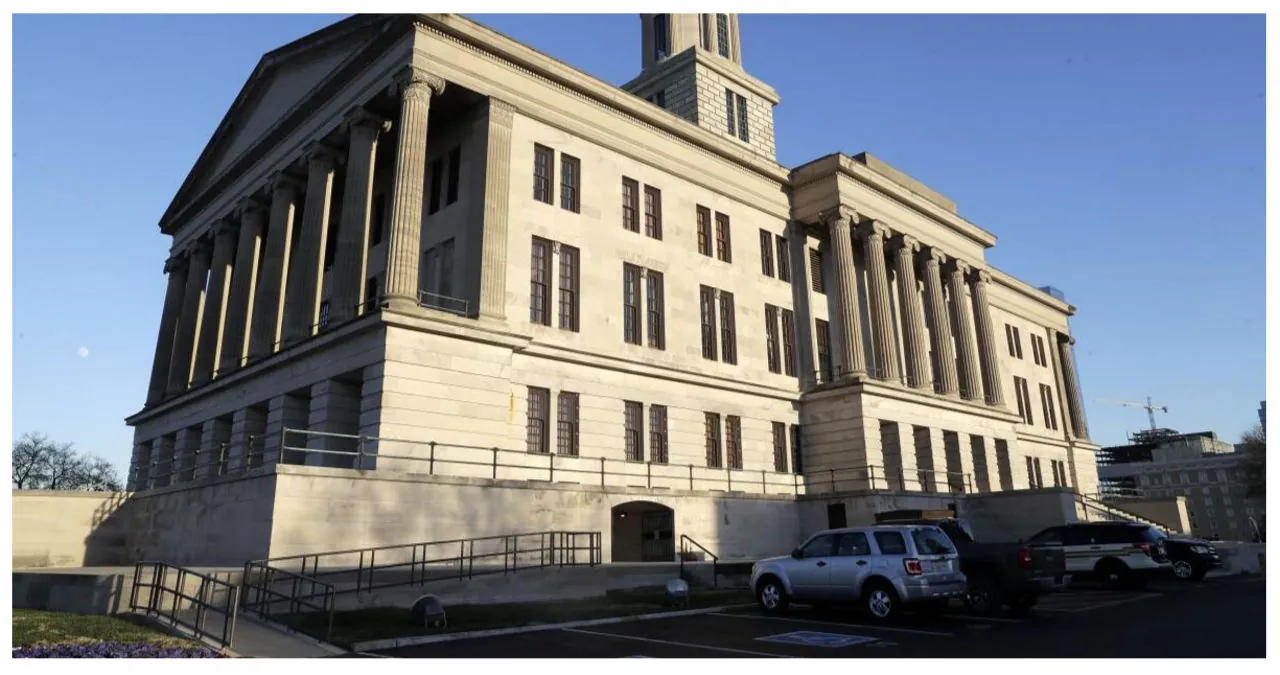Aiexpress – Tennessee’s elections office confirmed on Tuesday that the state’s voting rights restoration policy now mandates that individuals convicted of a felony must have their gun rights restored before they can be eligible to vote again. This requirement has been a subject of internal debate among officials.
During the previous summer, election officials interpreted a ruling by the state Supreme Court as necessitating that convicted felons seeking to regain their voting rights should first have their full citizenship rights restored by a judge or provide evidence of being granted a pardon. Voting rights advocates strongly disagreed with this legal interpretation, considering it to be completely incorrect.
The change, which was implemented by elections officials in July, has had a significant impact on voting rights restorations. Since its implementation, only one person has been approved for voting rights restoration, while more than 60 people have been denied. This is a stark contrast to the previous seven months, when approximately 200 people were approved and 120 were denied, according to data from the secretary of state’s office.
Mark Goins, the State Elections Coordinator, recently disclosed the decision regarding gun rights. In response to a question from The Associated Press, he highlighted the court’s ruling and emphasized that the restoration of full citizenship rights is a prerequisite for regaining the right to vote. Furthermore, he stated that according to the Tennessee Constitution, the right to bear arms is considered a fundamental right of citizenship.
Just last month, election officials in Tennessee were unsure about whether convicted felons, who hadn’t regained their gun rights, should be allowed to vote. They admitted to holding up 12 applications while seeking guidance from the state attorney general’s office.
According to the Campaign Legal Center, individuals who commit felony drug crimes or felonies involving violence in Tennessee lose their gun rights. Restoring their voting rights requires a high-level action such as a pardon by a governor.
The nonprofit and nonpartisan advocacy group, known as the center, had already initiated a federal class-action lawsuit against the state for its previous voting rights restoration process. They argued that the process suppressed the voting rights of Black citizens. This lawsuit was filed even before the implementation of the new rules.
The lawsuit claims that the state does not provide clear guidelines on which officials are authorized to sign the required forms, lacks criteria for denying restoration of voting rights, and does not offer any means of appeal. In addition, Tennessee mandates that applicants must be current on restitution, court costs, and child support payments. Moreover, the state already prohibits voting rights restoration for specific types of crimes committed within certain timeframes.
The trial, which was originally set for last November, has been delayed due to a policy change prompted by the high court’s decision. As a result, it is now unlikely that the trial will occur before this year’s elections.
Blair Bowie, director of Campaign Legal Center’s Restore Your Vote, criticized the Tennessee legislature’s efforts to create meaningful pathways for voting rights restoration. According to Bowie, the Elections Division, with assistance from the Attorney General’s office, is manipulating the law to prevent approximately 475,000 Tennesseans, including over 20% of voting age Black Tennesseans with past felony convictions, from exercising their right to vote.
The high court made a decision in June that went against a man’s request to register to vote in the state after receiving clemency for a crime committed many years ago in Virginia. According to the court, he still needed to follow the procedure to restore his voting rights.
Tennessee elections officials have recognized that while the court ruling was specific to that particular case, they have acknowledged that the wording closely aligns with the state law requirements, thus prompting the need for a comprehensive policy change.
Lawmakers returned to work at the Capitol earlier this month, but the question of whether supermajority Republicans would advocate for a return to the old reinstatement system remained uncertain. Senate Speaker Randy McNally, in particular, expressed a preference for even stricter regulations, highlighting the challenges of promoting the issue in Tennessee.
“I personally do not support allowing felons to vote. I believe that when individuals commit serious crimes or offenses against the state, they should face the consequences of their actions. Until they have served their time in jail and have received a pardon or exoneration for their crimes, I think it is fair for them to forfeit their voting rights.”
In a fortunate turn of events, the sole individual who was eligible for voting rights restoration through the new system encountered no obstacles in court. In September, a judge officially reinstated his “full rights of citizenship,” followed by the state elections office restoring his voting rights in November.
According to criminal defense attorney John Pellegrin, he assisted his client in regaining his citizenship rights through a judge’s intervention. However, he clarifies that he was not involved in the process of submitting documents for voting restoration. Pellegrin admits that he was unaware of the newly implemented, more rigorous requirements.
“I only discovered the change after we had already completed it,” Pellegrin informed the AP. The director of Campaign Legal Center’s Restore Your Vote, Blair Bowie, has been corrected to show that it is Blair Bowie, not Blair Bowe.”

